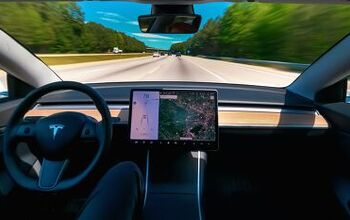Sirius-XM Going To The Dogs
The two U.S. satellite radio carriers became one at the end of July, but the monopoly has not had a smooth ride. After a few multi-million dollar golden parachutes payoffs, the combined company is in debt to the sad tune of over $2 billion. Neither was turning a profit prior to the merger, and the long-term outlook has SIRI singing the blues. Borrowing more money is near impossible right this moment and $400 million in convertible notes are due next year. (Sound like a GM-Ford merger to anyone?) Investors have punished the stock, sending its value below $1, risking delisting from NASDAQ. Just about everyone who wants satellite radio already has it, as hardware is already affordable. New cheaper ($4-$7/month) rate plans in hopes of bringing in new customers risks backfiring with current cash-strapped subscribers downgrading. The subscription-free competition is brutal: iPods, MP3-playing cell phones, OEM in-car jukeboxes, and terrestrial digital (HD) radio. Enjoy it while you can, but those satellites may be going dark in the not-so-distant future.
More by Richard Chen


































Comments
Join the conversation
I have had both Sirius and XM. The sound quality for music, as mentioned, is so-so. Has a sort of hollow echo effect. But I love it for the choice of talk and comedy channels. Especially for drives in the western states; there is no terrestrial radio outside of large cities. It's worth $10-15/mo. to me.
Although the audiophiles will never agree with me until they have heard the A-B-X tests I have, you would be hard pressed to hear a difference between a CD in the player mechanism, and one being played at Sirius or XM headquaters, through the compressed through the computer, beamed down through the Hughes or Sirius 1 satellite, and then into your car IF there are no other factors adding audio 'funk' into the equation. The problem is most head units and car audio systems introduce signal equalization to the mix. On the Corvette make sure that the ambient volume dependent compression circuits are off. If you want clean, pure, unadulterated audio, there are some awesome new aftermarket products that can eliminate the Corvette/Bose(or any other car manufacturer)amplification, crossovers, and signal processing circuits- check out JL Audio's CleanSweep or AudioControl's DQL-8. Finally, although the speakers from the factory in the car usually aren't the greatest, speaker placement is the main difference between a good sounding car audio system and a poor one. A car is a terrible place to listen to music because of comb filtering and reflections, however, a set of mediocre speaker in a good location (to minimize path-length differences to preserve stereo) will outperform great speakers in a poor location. And although 18 gauge or better would be nice for a subwoofer, automakers will always use the skinny stuff to keep weight down. Have no fear, 22-gauge is all you need in a car for a 'normal' system (uh-oh, I hear the audiophiles getting ready to attack).